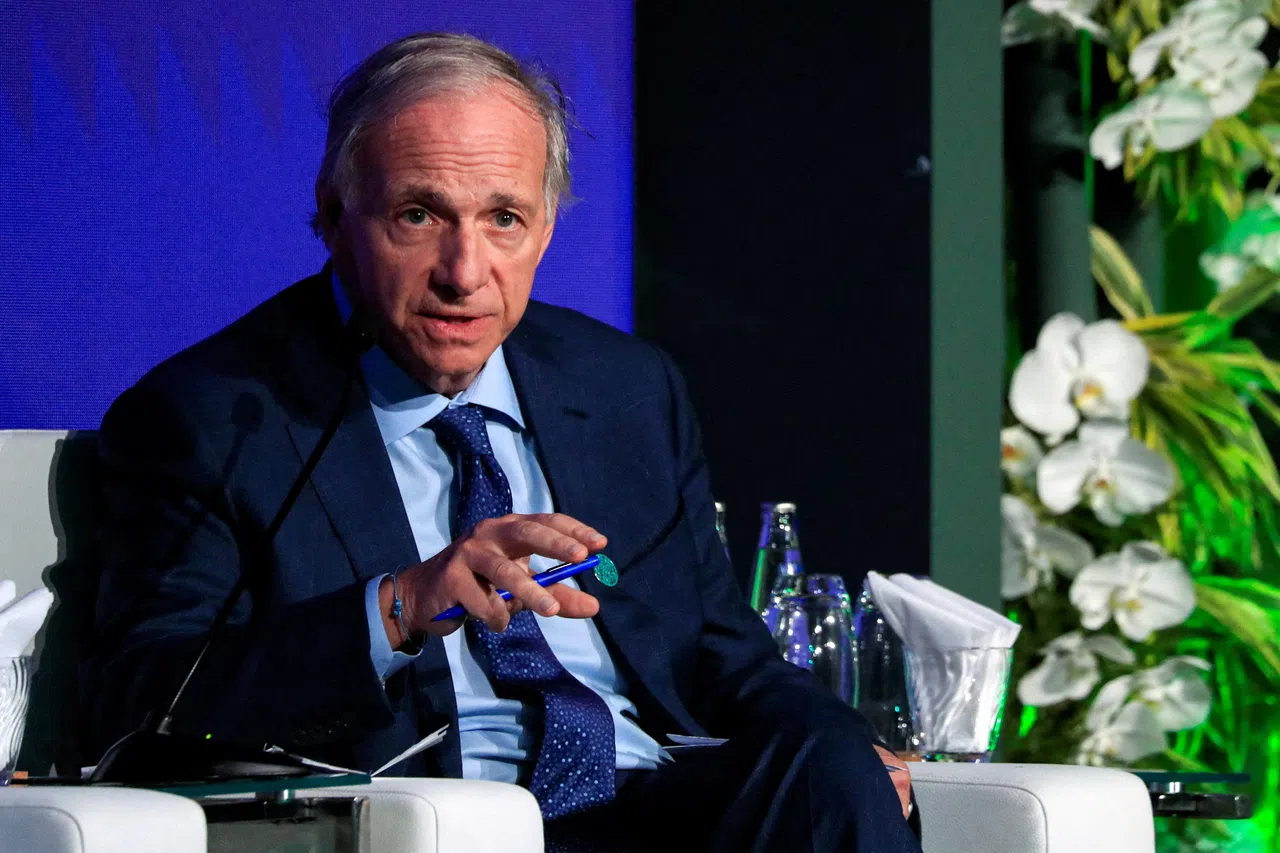ONCE a giant in Singapore’s oil trading industry, the collapse of Hin Leong Trading (HLT) exposed a web of fraud, forgery and financial mismanagement.
Founder Lim Oon Kuin – better known as OK Lim – was declared a bankrupt and also jailed 17 years.Here’s how it all went south for the once-iconic oil trader and the Lim family:
March 2020:
HLT tottered on liquidity after oil’s historic crash caused by the pandemic and a price war between oil giants.
April 2020:
Lim filed for a six-month debt moratorium to give HLT some “breathing space” to work out some US$4 billion of debt owed to more than 20 banks. Creditors baulked at the move.
Lim revealed that the trading firm hid US$800 million in futures losses in its books, stunning Singapore’s tight-knit oil community. He gave up board and management posts.
Singapore police confirmed probe into HLT following reports that a creditor bank has lodged a report. Creditors came knocking, and financials worsened. Lim’s son applied to place HLT under judicial management. In late April, the court granted the company an interim judicial management order.
BT in your inbox
Start and end each day with the latest news stories and analyses delivered straight to your inbox.
May 2020:
Fallout spilled over to connected entity Ocean Tankers, an operator of some 160 vessels, which was also placed under interim judicial management order.
June 2020:
The court-appointed managers from PwC spent the past months probing and unearthing “highly troubling” irregularities in HLT. There were signs of fraying relations between interim judicial managers and the Lim family. The interim judicial managers issued a preliminary report that HLT had “no reasonable prospect” of being rehabilitated and outlined a plan to rescue the firm as an integrated oil trading platform.
July 2020:
HLT was placed under judicial management. OCBC filed to appoint judicial managers to another related entity XiHe Holdings, a giant fleet owner; it cited “strong distrust” amid fraud allegations at its sister company. It was placed under interim judicial management in August.
August 2020:
Lim was charged with abetment of forgery for the purpose of cheating, while separately, he and his two children faced a S$19 million claim from the judicial managers. Suits came fast and furious – HLT’s judicial managers sued the Lims for US$3.5 billion, alleging they breached fiduciary duties and engaged in fraud.
September 2020:
Lim was slapped with a second charge of abetting an HLT worker in forgery. He was out on bail of S$3 million.
October 2020:
The Lim family sought to discharge the judicial management order and sought to wind up HLT.
March 2021:
HLT was ordered to wind up. Jurong Port acquired a 41 per cent stake in Universal Terminal, a commercial storage facility on Jurong Island that was owned by the Lim family.
April 2021:
Global banks teamed up to seek the personal assets of the Lim family. At least a dozen creditors, who were able to recoup just US$270 million from the collapsed company, went after the tycoon’s and his children’s assets. Late April, Lim was charged with 23 counts of forgery-related offences.
May 2021:
The High Court approved a Mareva injunction freezing up to US$3.5 billion of Lim family assets globally.
June 2021:
Hin Leong sued Deloitte, alleging the auditing firm failed to detect “serious irregularities” in its financial statements for more than a decade. Late June, Lim was slapped on the wrist with 100 more forgery-related charges. These involve some S$2.2 billion of loans that were disbursed as a result of fraud perpetrated by Lim against both local and international banks in Singapore.
July 2021:
Hin Leong’s Ocean Tankers sold its lubricant blending plant and storage facilities in Tuas to Gulf Oil International for US$36 million.
August 2021:
Lim’s daughter was charged with obstructing justice by instructing the deletion of HLT’s server data.
October 2021:
The Court of Appeal dismissed the Lim family’s appeal against a suit won by the judicial managers of Ocean Tankers. In April, Ocean Tankers’ judicial managers won their bid in court to claim US$19 million from Lim and his children.
October 2022:
Unicredit Bank lost its US$37 million claim against Glencore Singapore related to HLT. The court ruled that Glencore neither defrauded the bank nor conspired with HLT.
April 2023:
Lim’s trial began, with prosecutors alleging he cheated HSBC of US$112 million through false invoice-financing applications. Prosecutors relied on testimony from employees of both HSBC and Hin Leong, as well as representatives of CAO and Unipec. Singh of Davinder Singh Chambers questioned prosecution witness’ recollection of the key transactions. HSBC had not terminated its discounting agreements with the oil trader upon learning that the transactions involving CAO and Unipec Singapore did not materialise, said Singh, suggesting that the bank sought to retain profits from fraudulent transactions.
June 2023:
A Unipec executive denied receiving an e-mail that was purportedly sent to him by HLT’s trading team. The e-mail contained an alleged US$55.8 million contract for the sale of ultra-low sulphur diesel by HLT to Unipec that was apparently concluded in March 2020. But senior counsel Davinder Singh hit back at the executive’s statement, accusing the witness of lying on the stand and raising “material inconsistencies” between the witness’ court testimony and an earlier statement given to the Singapore police. Lim stated in a CAD interview that the company “did not plan to cheat banks for financing”. As it was already in “verbal discussions with Unipec Singapore and CAO”, Lim asked his employees to draft the contracts. “At that time, Hin Leong (was) facing margin calls, so I asked them to send (the contracts) to the treasury department,” he said.
July 2023:
Prosecutors concluded a 14-week trial with 17 witnesses.
August 2023:
Hin Leong liquidators and HSBC sued Lim and his children for US$3.5 billion. The court also dismissed Lim’s bid to block Rajah & Tann Singapore from representing liquidators.
October 2023:
Lim described HLT as a “family business” with significant interdependencies. “Sometimes, if one company needs anything, the other will help. If one company needs funds, another company will send the funds over,” he said. He rejected claims made by former employees, denying involvement in accounts or instructing staff to monitor bank transactions.
November 2023:
Lim denied responsibility for the “wrong and illegal actions” of his employees. He also clashed with prosecutors over his role and involvement in the company operations.
February 2024:
Senior counsel Davinder Singh, who was representing Lim, cross-examined former HLT’s employee Serene Seng regarding inconsistencies in her statements and court testimonies.
May 2024:
Lim was convicted of three criminal charges involving US$111.7 million. Two charges related to cheating HSBC, and the third involved forging a document to facilitate fraud. The court found that Lim directed staff to submit fraudulent documents for non-existent transactions.
September 2024:
Lim and his children agreed to pay US$3.5 billion in one of Singapore’s largest civil suits to HLT’s liquidators and top creditor HSBC.
October 2024:
Sembcorp Industries’ wholly owned subsidiary, Sembcorp Cogen, settled legal claims against HLT for US$50.9 million.
November 2024:
Lim was sentenced to 17 years and six months in prison for three charges of cheating and forgery. The charges stemmed from contracts involving oil sales with China Aviation Oil Singapore (CAO) and Unipec.
December 2024:
Lim and his children were declared bankrupt.



